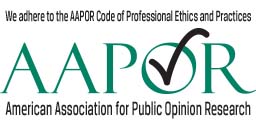The effect of quality market research on the performance / profitability of real estate investment in emerging economies
DOI:
https://doi.org/10.25255/2306.8043.2020.8.3.139.155Keywords:
Quality research, investment decisions, pre-investment studies, investment performance, emerging economiesAbstract
The ever increasing global competition among real estate investment organizations has it made imperative for industry players to continually invest in real estate market research to guide them in investment decisions. The quality of market research report provided by the market research professional/consultant is expected to reflect on the quality of outcome of investment decisions made by the investors ad invariably affects the marketability and profitability of the investment concerned. This study investigates the effect of quality market research on the marketability and profitability of real estate investment in developing economies taking Lagos-Nigeria, as case study. The study area is Lagos metropolis, southwestern Nigeria, chosen because of its strategic relevance in real estate investment, as emerging market. Research design is cross-sectional type which is descriptive and the study population consists of respondents who are real estate research consultants and real estate investors in the study area. Random sampling technique was applied and research instrument was closed and open-ended structured questionnaire and face-to interviews for the primary data; and Journals, textbooks, published articles and internet for secondary data. Data collected was analyzed using simple descriptive and statistical tools such as frequency distribution tables, charts, percentages, mean scores, pearson correlation, Analysis of variance (ANOVA) as well as Likert scale. The summary of the result of the data analysis shows that market research contributes immensely to the Property Investment Performance in major indices. The result also established healthy relationship between the quality of market research and real estate investment performance showing that the correlation coefficient of 0.240 significant at 10% level. Subsequently, the study recommended among other things, the establishment of data bank for all real estate performance indices; and real estate market research institute by the Federal Government of Nigeria.
Downloads
References
Chiliya .N. (2009). The impact of marketing strategies on profitability of small grocery shops in South African Townships. African Journal of Business Management 3(3), 70 -79.
Darlow .N. Bainess, T& Swamidass .P. (2001). The Role of Manufacturing and Marketing Managers in Strategy Development. Researchgate.
Greer .G. & Kolbe .P. (2003) Investment Analysis for Real Estate Decisions (5th Edition) Keplan Publishing.
Hartfield, .G. (2006) The Quality of Data and Data Availability for Property Research. School of Built Environment, United Institute of Technology, New Zealand, 1-2.
Hodgson .g. (2018). Taxonomic Definitions in Social Science with Firms, Markets and Institutions as case studies. Journal of Institutional Economics.
Jones LaSalles (2008). Global Real Estate Transparency Index.
Kim .A. (2004). A market without the “right property rights”. JOURNAL OF Economics of Transition and Institutional Change Vol. 12 Issue 2 https://doi.org/10.1111/jo967-0750.2004.001279x.
Kotler .P. (2011) Strategic Market Segmentation. European Journal of Business and Management. Vol.3 No9,2011.
Lipsey .P.(2013). The Politics of Financial Crisis Response in Japan and the United States. Japanese Journal of Political Science 14(3).
Mackenzie .D & Betts .R. (2011). Essentials of Real Estate Economics. (3rd Edition). Centage Learning, 2011. Business & Economics.
Mckenzie .D. & Betts .R. (2011): Essentials of Real Estate Economics (3rd Edition). Centage Learning, 2011. Business& Economics.
Miles .M.; Berens .C.; Eppli .M. & Weiss .M. (2007) Real Estate Development Principles and Process. Washington, Urban Land Institute 13-14.
Nworah J.C (2019). Examination of the Quality of MARKET Research Conducted for Real Estate Investment in Emerging Economies: case study of Lagos, Nigeria. International Journal of Innovative Research in Science, Engineering and Technology. Vol 8, Issue 9, September 2019. ISSN (online): 2219-8753 ISSN (PRINT):2347-6710.
Ogbuefi J.U. (2011). Aspects of Feasibility and Viability Studies. Institute for Development Studies, Enugu, 45-48.
Otegbulu .A.; Mohammed .M. Babawole .G. (2011). Survey on Risk Assessment Techniques Applied in Real Estate Development Projects in Nigeria. Journal of Contemporary Issues in Real Estate 1(1), 101-195.
Pindyck .R. (2014). Risk and Return in Design of Environmental Policy. Journal of Association of Environmental and Resources Economics. 1(3); 395-418. September, 2014.
Poolton .J. & Barclay .I. (1998). New Product Development from Past Research to future Application. Industrial Marketing Management, 27(3): 197-212.
Simon .G. & Harris .R. (1995). Property in a Global Risk Society: Towards Marketing Research. University of Newcastle, 1-32.
Sherry L. (2014). Encouraging Sustainable Consumption: An exploration of Consumer Behaviour. The marketing Review: Vol 14, No 2. Pp189-203; 2014.








 a Creative Commons Attribution 4.0 International License.
a Creative Commons Attribution 4.0 International License.